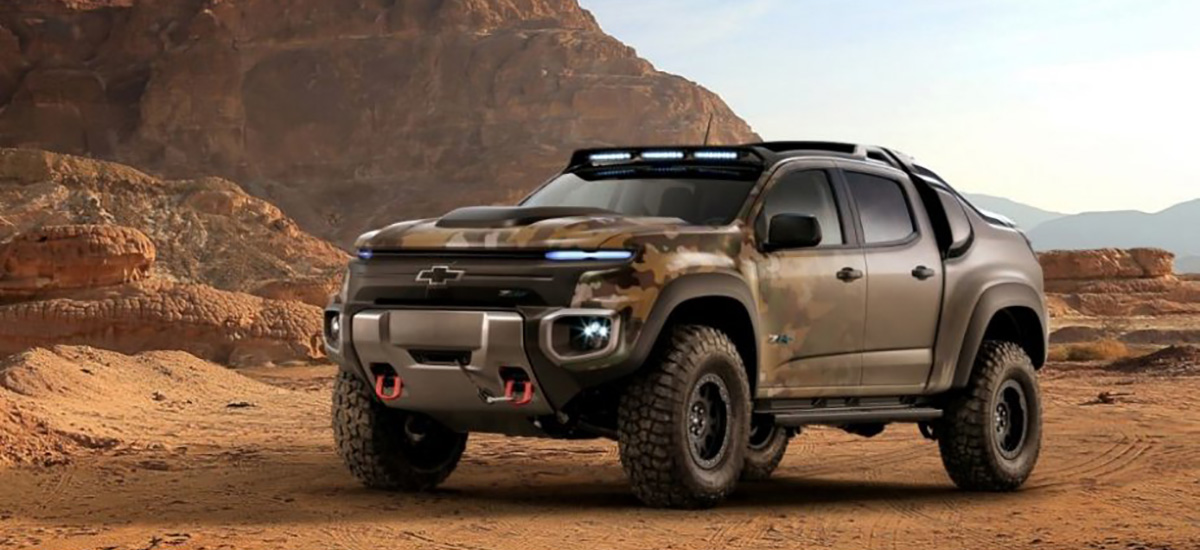
 Your Credit Estimate
Your Credit Estimate
 Your Credit
Your Credit
Your zip code helps us provide you with the most accurate vehicle pricing and vehicle availability.
We estimate your credit score to give you an idea of your monthly payments. To get an accurate payment amount, complete our credit application by clicking the Start Credit Application button below.
start credit application
About a year ago, we first learned about all of the hydrogen fuel cell vehicles automakers like Honda, Toyota, Hyundai, and GM were working on. At first, it was a great idea. We’re talking a basically limitless fuel supply - take a little water, some electrolysis, and we have hydrogen. The problem was, like all alternative fuel vehicles at some point, how practical would it be to have a vehicle powered by a hydrogen fuel cell? After all, it will can cost upwards from $2 million to build a single hydrogen fueling station.
Maybe some input from the U.S. Army can help with their continued testing of the Hydrogen Fuel Cell Chevrolet Colorado. Remember that project? The Hydrogen Fuel Cell Chevrolet Colorado is powered by a 177 horsepower electric motor and a “proton-exchange membrane fuel-cell stack”. When talking about it on social media, a lot of people *cough*trolls*cough* felt the need to point out that a single bullet will turn that truck into a bomb. They must have simply read the title and decided to wail, because anyone who read the entire article would’ve seen this tidbit - “the Army version of the Chevy Colorado ZH2 is not only outfitted with better protection for the system, but has an emergency protocol program designed to vent hydrogen up and away from the vehicle if its tank's integrity is compromised.”
Here we are, nearly a year later, and the U.S. Army is still testing the hydrogen fuel cell-powered Chevrolet Colorado ZH2. Back when GM and the U.S. Army Tank Automotive Research, Development and Engineering Center (TARDEC) first collaborated on the development of such a technological feat, it didn’t take long to go from contract to concept. In less than a year, the Colorado ZH2 was developed and evaluated by soldiers at the squad and platoon levels in real-world field conditions at Fort Bragg, North Carolina, and Fort Carson, Colorado.
Three of the major positives were:
- The Colorado ZH2 is silent and can sneak up or away from an objective with very little-to-no noise, even in high elevated areas - perfect for spy or convoy missions.
- Diesel generators are currently used by TARDEC to power communications (comms) equipment. However, the electric generator in the ZH2 can power comms equipment with ease, and a lot more quietly. Some would say they could replace diesel generators completely.
- Fueling up is super easy, and not just for the vehicle. Having a hydrogen fuel cell vehicle can also keep soldiers hydrated with water vapor conversion. Water vapor emissions can be converted into ionized potable water a.k.a. drinking water, which could help for long missions where supplies such as water run low.
The latest testing for the Hydrogen Fuel Cell Chevrolet Colorado ZH2 demonstrated other ways utilization of the vehicle may be beneficial. Inside the Colorado ZH2 is an “Exportable Power Take-Off” unit (EPTO) that allows the fuel cell to power tools away from the vehicle where electric power may otherwise be unavailable. This can be especially helpful with all the gadgets soldiers need to carry in the field - night vision goggle systems, thermal cameras, crew systems, UAV assets, etc. All it takes is a tiny fuel cell to make a rechargeable battery for all of those items.
We also learned a little about exactly how the Colorado ZH2 is powered. The ZH2 actually generates electricity from highly compressed hydrogen stored in the vehicle combined with oxygen from the atmosphere through an electrochemical reaction. Unlike electric vehicles today, the fuel and power comes from naturally occurring elements already in the air around us. Plus, if needed, existing fuels such as gasoline, propane, JP8 (the Army’s main petroleum fuel source), and natural gas can all be used to produce hydrogen in case of emergency. So far, it seems the Army is sold on the idea of making the ZH2 practical, even if not yet ready for civilian use.
“Fuel cells have the potential to expand the capabilities of Army vehicles significantly through quiet (stealthy) operation, exportable power and solid torque performance, all advances that drove us to investigate this technology further.” - Paul Rogers, director of TARDEC.
The next test for the army will be focused on defining how to produce, store, transport, and distribute hydrogen on the battlefield and the cost implications of hydrogen technology in various applications and phases of major combat operations. While they fiddle around with that, Hyundai and Kia are all set to release their own hydrogen fuel cell vehicles by 2020. We civilians won’t have to wait that long after all.
Let’s talk more about this on NowCar social media.